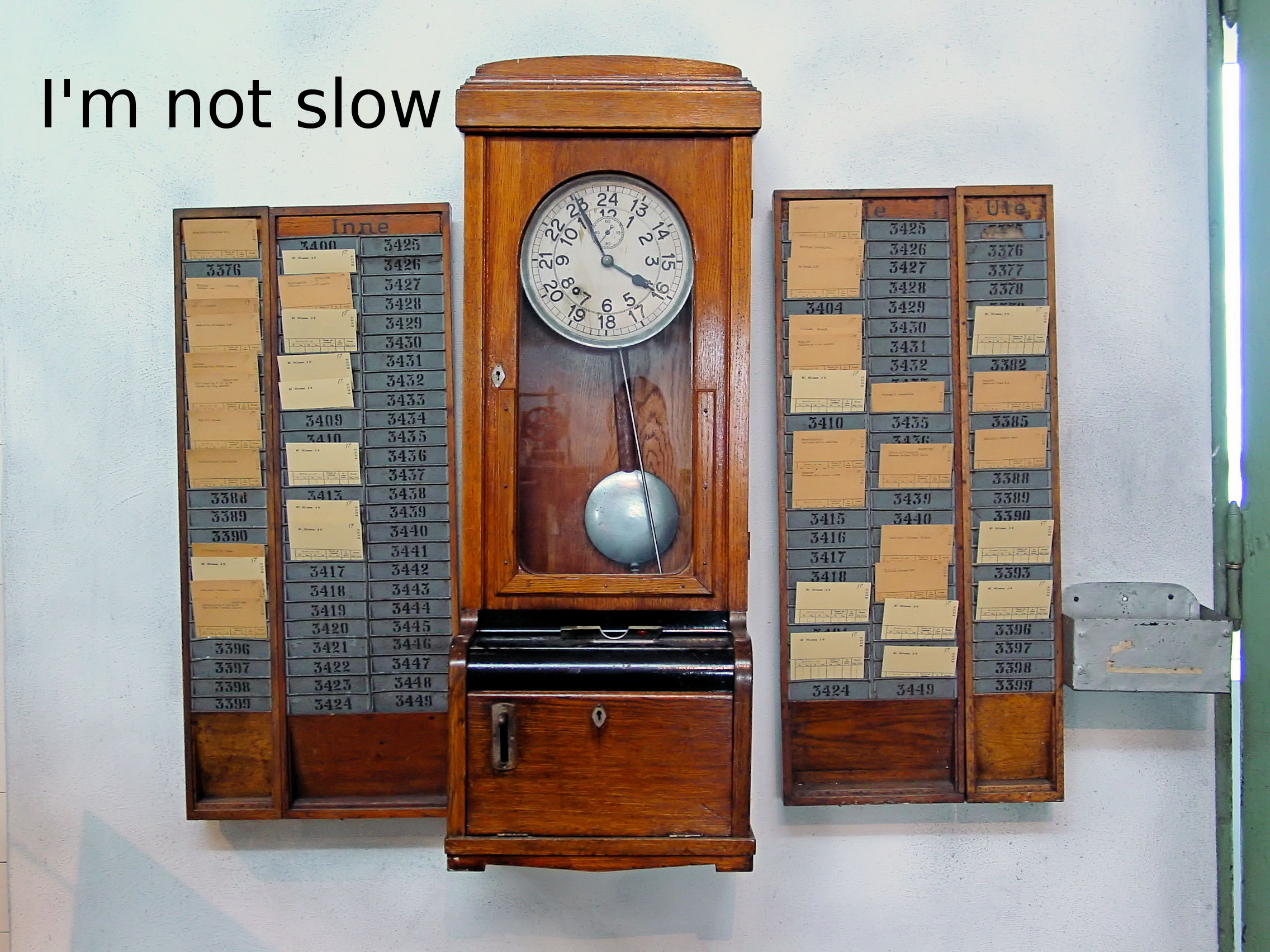My code is slow!
Writing Efficient R Code

Colin Gillespie
Jumping Rivers & Newcastle University
Is my code really slow?

- 1 second?
- 1 minute?
- 1 hour?
Is my code really slow?
Benchmarking
- We construct a function around the feature we wish to benchmark
- We time the function under different scenarios, e.g., data set
Example: Sequence of numbers
$$ 1, 2, 3, \ldots, n $$
Option 1
1:n
Option 2
seq(1, n)
Option 3
seq(1, n, by = 1)
Function wrapping
colon <- function(n) 1:n
colon(5)
1 2 3 4 5
seq_default <- function(n) seq(1, n)
seq_by <- function(n) seq(1, n, by = 1)
Timing with system.time()
system.time(colon(1e8))
# user system elapsed
# 0.032 0.028 0.060
system.time(seq_default(1e8))
# user system elapsed
# 0.060 0.028 0.086
system.time(seq_by(1e8))
# user system elapsed
# 1.088 0.520 1.600
- user time is the CPU time charged for the execution of user instructions.
- system time is the CPU time charged for execution by the system on behalf of the calling process.
- elapsed time is approximately the sum of user and system, this is the number we typically care about.
Storing the result
The trouble with
system.time(colon(1e8))
is we haven't stored the result. We need to rerun to code store the result
res <- colon(1e8)
The <- operator performs both:
- Argument passing
- Object assignment
system.time(res <- colon(1e8))
The = operator performs one of:
- Argument passing
- object assignment
# Raises an error
system.time(res = colon(1e8))
Relative time
| Method | Absolute time (secs) | Relative time |
|---|---|---|
colon(n) |
0.060 | $0.060/0.060 = 1.00$ |
seq_default(n) |
0.086 | $0.086/0.060 = 1.40$ |
seq_by(n) |
1.607 | $1.60/0.060 = 26.7$ |
Microbenchmark package
- Compares functions
- Each function is run multiple times
library("microbenchmark")n <- 1e8 microbenchmark(colon(n), seq_default(n), seq_by(n), times = 10) # Run each function 10 times
# Unit: milliseconds
# expr min lq mean median uq max neval cld
# colon(n) 59 130 220 202 341 391 10 a
# seq_default(n) 94 204 290 337 348 383 10 a
# seq_by(n) 1945 2044 2260 2275 2359 2787 10 b
Let's practice!
Writing Efficient R Code

